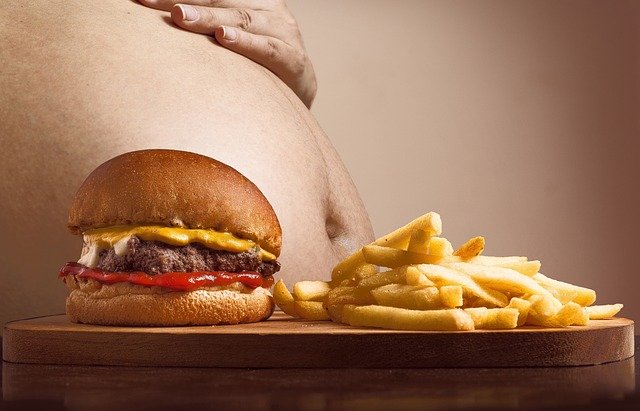
Así que empezamos el nuevo año con un montón de metas, planes, promesas incluso. Uno de ellos tiene que ver con comenzar un hábito saludable o más bien, quitarnos hábitos que no nos hacen bien pero que por algún motivo no podemos dejar. ¿Qué son y por qué son tan difíciles de dejar?
Hábitos
Los hábitos se forman porque hicimos algo que nos pareció agradable. Cabe destacar que hace miles de años este sistema era infalible porque todo lo que había estaba simplemente ya hecho. Las frutas podían ser dulces pero no tan dulces como lo son ahora. Encima, no eran tan fáciles de conseguir porque una vez que los tomas todos tienes que esperar a que el árbol los vuelva a sacar. No tenían todo el sistema industrial que, si queremos, nos podríamos morir comiendo cualquier cosa. Y a veces eso es lo que ocurre, desgraciadamente.
Entonces, algo nos parece agradable. El cerebro libera dopamina y entonces se siente muy bien, muy divertido. Pero luego otro circuito entra, los endocannabinoides, que se encargan de mantener el hábito en funcionamiento. A lo mejor te has dado cuenta que estás haciendo algo, ya no es tan divertido, pero aún así no puedes parar. Ya ahí los endocannabinoides están en funcionamiento.
Desde luego, indignados por estas conductas invasivas e inconvenientes, nuestro primer impulso es parar de golpe usando todo el poder de nuestro lóbulo prefrontal cerebral: "¡Ja! ¿Acaso esas papitas fritas creen que pueden controlarme? ¡Pues, ya verán!". Y soltamos la bolsa con furia, luego parece que salimos corriendo para incrementar la distancia entre ese algo y nosotros. Le adjudicamos todo tipo de atributos negativos, sinónimos con satanás... pero al día siguiente, cabizbajos, buscamos la bolsa despreciada y seguimos consumiéndola. "¡¿Qué diablos está mal conmigo?!"

Consciencia
Pues no estás solo. Un día, un monje fue hacia su gurú y le preguntó como poder curarse de su adicción a las papas fritas. En este punto, probablemente te estás imaginando que lo llamó débil, de voluntad frágil, le dijo que se pusiera a orar por 3 días sin dormir y se arrepintiera.
Nada que ver.
La respuesta de este maestro fue:"Anda, no te compres solo una bolsa de papas fritas, sino tres. Cómete una y tráete las otras dos al monasterio. Siempre que tengas ganas de comer papitas, cómetelas, pero presta atención"
En otras palabras, usa mindfulness con tus malos hábitos. Te darás cuenta que es lo que menos haces. Mientras comes esas papitas, bebes de ese refresco, o estás en tu 5ta hora de juegos de video, no te estás preguntando cómo te estás sintiendo en ese momento. Nos disolvemos en el hábito, en la dopamina, y no nos damos cuenta que muy rápidamente se termina y seguimos haciéndolo por inercia. No nos estamos preguntando siquiera a qué sabe. Creo que te darías cuenta que en realidad no saben tan bien y que incluso (como me pasó con un refresco de uva que me encantaba), te dejan un sabor amargo, desagradable y penetrante en la lengua difícil de quitar.
Yo tuve que dejar el trigo debido a mi enfermedad celiaca que me daba tremendos síntomas de depresión y de ansiedad. Permíteme decir más, eso significa: "no más galletas, ni tortas, ni ponquecitos, ni panquecas para Tino".
¿Valientemente dejé de tomar todo contacto con el trigo? No. Me observé a mi mismo incluso con algo de pena ajena mientras me comía galletas en secreto, de noche, con voracidad, con los ojos saltones en una propia personificación de Smeagol en el señor de los anillos, solo para minutos después quedarme poco a poco sin fuerzas en mi cama con el intestino inflamado, con el corazón dándome saltos de ansiedad. Pero tal vez de tanto leer y de pensar, llegó un punto en que ya no me trataba con autodesprecio debido a mis malos hábitos. Simplemente a veces hay cosas que están mal y necesitan tiempo para mejorar.

Hoy, mi novia tiene galletas allí desde ayer. Accidentalmente se había ido a dormir y las dejó afuera (Cosas de vivir con una repostera). Eran galletas con chispas de chocolate, pero descubrí que practicando la consciencia de todo el proceso de impulso y consumo en el pasado, apenas y tenía algún antojo que encima fue muy manejable. Para terminar de evadirlo solo me recordé toda la experiencia que había acumulado: El cómo me pongo cuando como del trigo. Con mucha facilidad, las puse en un envase para conservarlas. Pero diría que lo más difícil es construir esa comprensión, esa paciencia, de que aunque hagamos cosas "malas" o tengamos "malos" hábitos, no sirve de nada estar apaleándonos a nosotros mismos ni torturándonos por nuestras debilidades.
Eventualmente yo y el monje, superamos nuestros malos hábitos. ¿De qué me habría servido odiarme mientras lo hacía? Pues, sorpresa; mientras más ansiedad, más ganas te dan por incurrir en tus malos hábitos. Entonces llegué a la conclusión que la impaciencia, el autodesprecio, son también otros malos hábitos que debemos superar. A nivel cerebral, la conexión entre el área de tus hábitos y el área de tu autocontrol se hacen más fuertes. Al mismo tiempo que los debilitas, más fuerte se hace tu autocontrol. Todo eso con el truco de observar, preferiblemente sin juzgar. Pregúntate de tanto en tanto como te sientes. Indaga en las sensaciones de tu cuerpo. Mientras haces algo que crees que no deberías, pero lo haces igual, trata de sentirlo con mucho cuidado. Ya sean sabores, o todos los órganos sensoriales involucrados, el tacto también y luego sigue un rastreo emocional, físico e incluso mental que te queda después. Te darás cuenta de tantas cosas que puede que tú vida no vuelva a ser la misma.
Cada vez, las palabras de Lao Tse vuelven a mi cabeza del Tao te king: "La naturaleza en nada se apresura y sin embargo, todo lo logra".
¡Un fuerte abrazo!




So we start the new year with a lot of goals, plans, even promises. One of them has to do with starting a healthy habit or rather, getting rid of habits that are not good for us but that for some reason we cannot stop. What are they and why are they so hard to give up?
Habits
Habits are formed because we did something that seemed pleasant. It should be noted that thousands of years ago this system was infallible because everything there was, was simply already done. Fruits could be sweet but not as sweet as they are now. On top of that, they weren't so easy to get because once you take them all you have to wait for the tree to produce them again. They didn't have the whole industrial system that, if we wanted, we could gorge ourselves to death. And sometimes that's what happens, unfortunately.
So, something seems nice to us. The brain releases dopamine and then it feels very good, very fun. But then another circuit comes in, the endocannabinoids, which are responsible for keeping the habit going. Maybe you've realized that you're doing something, it's not so fun anymore, but you still can't stop. The endocannabinoids are already at work there.
Of course, outraged by these invasive and inconvenient behaviors, our first impulse is to stop suddenly using all the power of our prefrontal lobe of the brain: "Ha! Do those potato chips think they can control me?! Well, they'll see!" And we drop the bag in fury, then it seems that we run away to increase the distance between that something and us. We attribute all kinds of negative attributes to it, synonymous with satan... but the next day, crestfallen, we look for the despised bag and continue consuming it. "What the hell is wrong with me?!"

Awareness
Well you are not alone. One day, a monk went to his guru and asked how to cure his addiction to potato chips. At this point, you're probably imagining that he called him weak, weak-willed, he told him to pray for 3 days without sleep and repent.
None of that.
This teacher's response was: "Go on, don't just buy one bag of chips, but three. Eat one and bring the other two to the monastery. Whenever you feel like eating chips, eat them, but with awareness."
In other words, use mindfulness with your bad habits. You will realize that it is what you do the least. While you're eating those chips, drinking that soda, or on your 5th hour of video games, you're not wondering how you're feeling at that moment. We dissolve into the habit, into dopamine, and we don't realize that it ends very quickly and we continue doing it out of inertia. We're not even wondering what it tastes like. I think you would realize that they don't really taste that good and that even (as it happened to me with a grape soda that I loved), they leave a bitter, unpleasant and penetrating taste on your tongue that is difficult to remove.
I had to give up wheat due to my celiac disease, which gave me tremendous symptoms of depression and anxiety. Let me say more, that means: "no more cookies, no cakes, no muffins, no pancakes for Tino."
Did I bravely stop all contact with wheat? No. I even watched myself with some cringe as I secretly ate cookies, at night, voraciously, with my eyes bulging in my own personification of Smeagol in the Lord of the Rings, only to be left little by little minutes later, weak in my bed with an inflamed intestine, with my heart jumping with anxiety. But perhaps from so much reading and thinking, there came a point where I no longer treated myself with self-hatred because of my bad habits. Sometimes there are simply things that are wrong and need time to improve.

Today, my girlfriend have cookies there since yesterday. She had accidentally gone to sleep and she left them outside (Things about living with a baker). They were chocolate chip cookies, but I discovered that by practicing awareness of the entire impulse and consumption process in the past, I barely had any cravings, which was very manageable. To finish evading it, I just reminded myself of all the experience I had accumulated: How I get when I eat wheat. Very easily, I put them in a container to preserve them. But I would say that the most difficult thing is to build that understanding, that patience, that even if we do "bad" things or have "bad" habits, it is no use beating ourselves up or torturing ourselves for our weaknesses.
Eventually, me and the monk, we overcame our bad habits. What good would it have done to hate myself while I did it? Well, surprise; The more anxiety you have, the more you want to engage in your bad habits. Then I came to the conclusion that impatience, self-hatred, are also other bad habits that we must overcome. At the brain level, the connection between the area of your habits and the area of your self-control become stronger. At the same time you weaken them, the stronger your self-control becomes. All this with the trick of observing, preferably without judging.
Ask yourself from time to time how you feel. Investigate the sensations in your body. While doing something you think you shouldn't, do it anyway, try to feel it very carefully. Whether it's flavors, or all the sensory organs involved, touch too, and then follow an emotional, physical and even mental tracking of you are left with afterwards. You will realize so many things that your life may never be the same again.
Each time, Lao Tzu's words come back to mind from the Tao Te Ching: "Nature rushes nothing and yet accomplishes everything."
A big hug!



Un buen tema para iniciar este año 2024 cuidando de un aspecto muy importante que es nuestra salud.
Así es ~ y aprendiendo cada vez más. Te deseo un hermoso año nuevo.